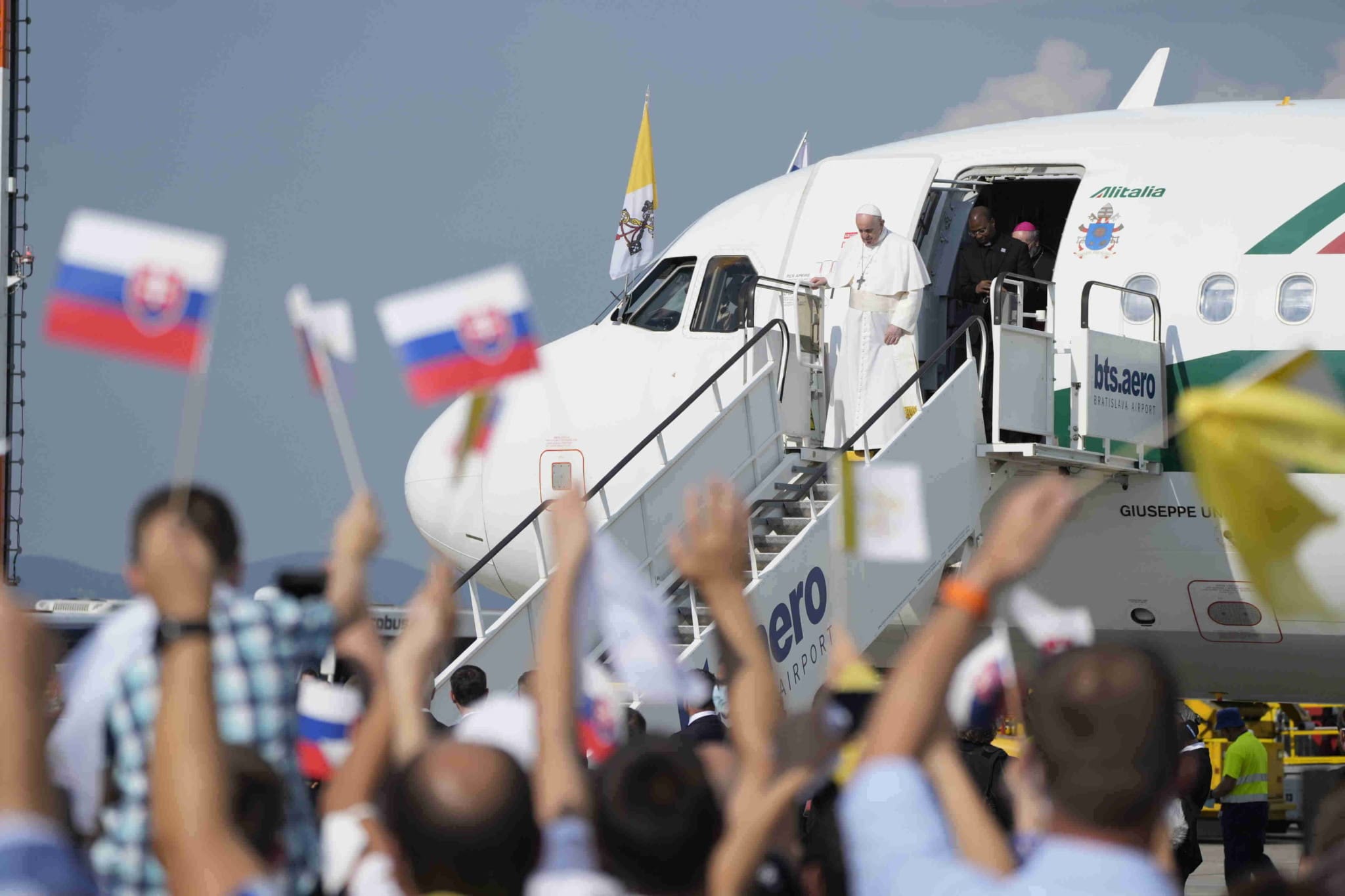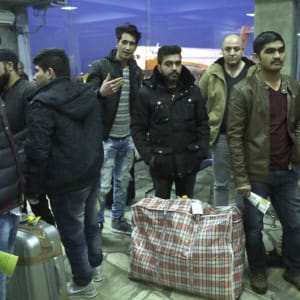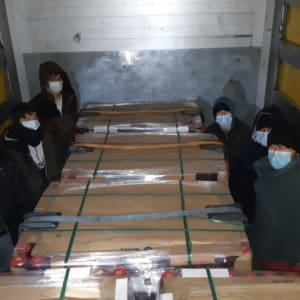In his first speech after arriving in Slovakia on Sunday afternoon, Pope Francis spoke about the need to help the poor and warned against being satisfied with existing certainties. The head of the Catholic Church then added that after gaining freedom from the earlier persecution of manifestations of religious freedom, such as in communist countries, there is still the temptation of internal slavery.
“Only if we stand on the side of the weakest, especially in this painful period, will we really get out of the pandemic,” the Pope told leaders of churches and religious societies while appreciating the hospitality of Slovaks.
According to Pope Francis, after years of persecution of religious freedoms during the communist regime, the churches now face the temptation to become slaves, but not to any regime but something worse. The pope warned against internal slavery.
“Let us help each other so that we do not fall into the trap of being satisfied with bread and something to go with it. By being satisfied with bread and certainties, have we not lost the vigor in seeking unity that requires sacrifice? Let us not only care about what our communities can benefit from,” said the pope, who called on people to take an interest in the freedom of others.
According to the pope, it is difficult to expect a greater breakthrough of Christianity in Europe when the Church itself is not united. He added that historical reasons could not be an insurmountable obstacle to this.
Pope Francis will stay in Slovakia until Wednesday. At Bratislava’s Štefánik Airport, he was greeted directly by politicians, representatives of the Church, institutions, and the public. The head of the Catholic Church arrived in the country after visiting Hungary.
Immediately after landing, children in traditional Slovak costumes greeted the Pope with bread and salt according to the ancient custom and handed him a bouquet created from native Slovak species of plants and herbs.
The welcoming ceremony at the airport was attended also by President Zuzana Čaputová, accompanied by the Ombudsman, former politician and Catholic dissident František Mikloško, a Holocaust survivor and director of a civic association that has pioneered the development of children’s home palliative care in the country. According to the presidential office, these personalities are symbols of the values that unite Čaputová with the pope, namely the protection of human rights, freedom and democracy, and compassion for the most vulnerable.
The main part of the pope’s visit to Slovakia begins on Monday. In Bratislava, he will gradually meet with politicians, representatives of civil society, and representatives of the Jewish community.
In the east of the country, he also plans, among other things, to meet with young people and Roma. The visit of the head of the Catholic Church to Slovakia, the first since 2003, will culminate on Wednesday at Mass in Šaštín near the border with the Czech Republic.
Public interest in participating in public events with the pope in Slovakia has, so far, fallen short of expectations. The condition for obtaining a ticket was first full vaccination against Covid-19. Later, the Conference of Bishops of Slovakia set aside sectors for people who will only have a Covid-19 test. Seats in these sectors with limited capacity were booked within a few days.
Title image: Pope Francis arrives at Bratislava, Slovakia, international airport Sunday, Sept. 12, 2021. Francis is opening his first foreign trip since undergoing major intestinal surgery in July, embarking on an intense, four-day, two-nation trip to Hungary and Slovakia that he has admitted might be overdoing it. (AP Photo/Gregorio Borgia)





